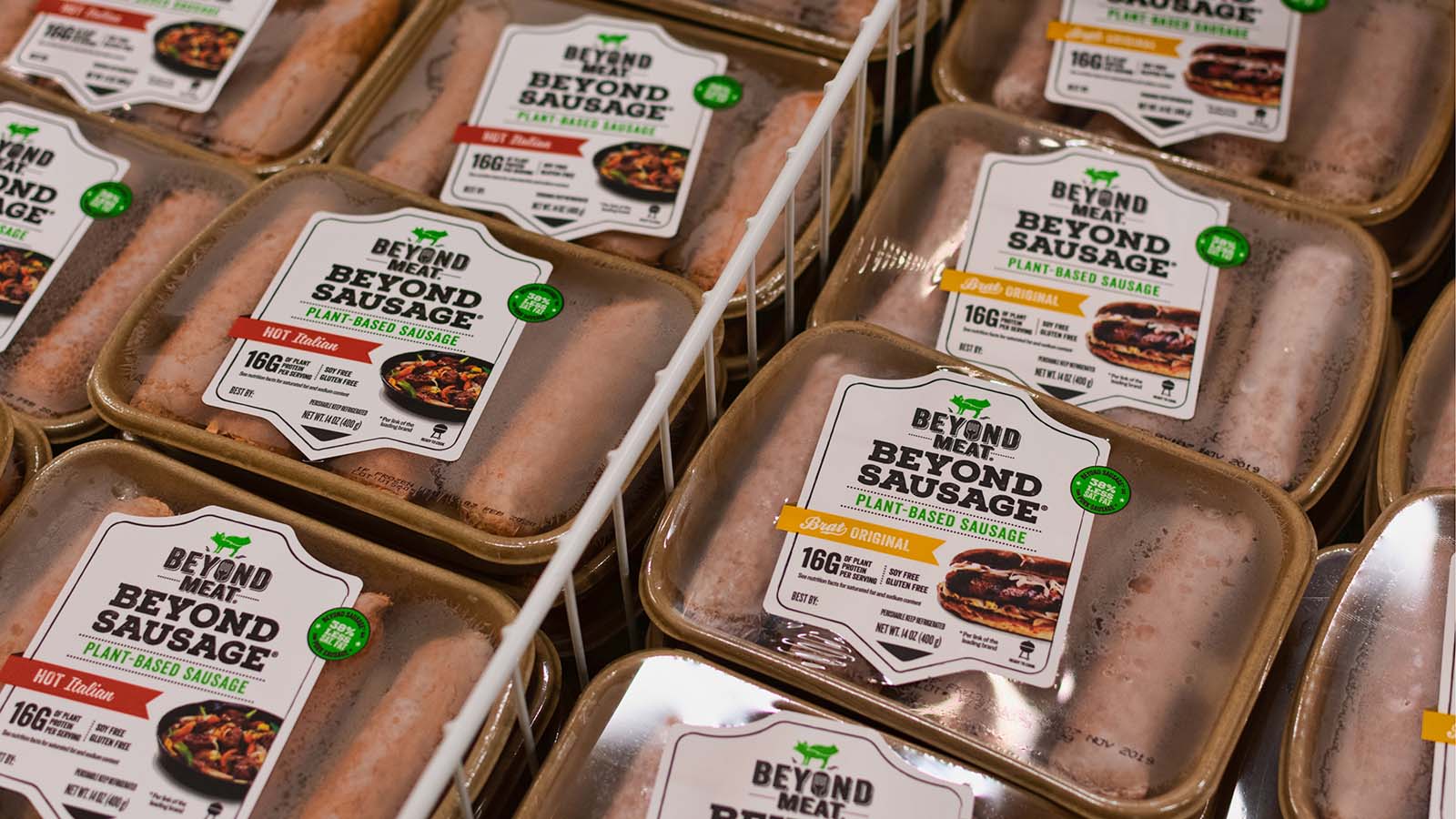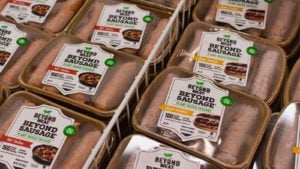Beyond Meat (NASDAQ:BYND) stock is down over 60% from July. After its initial public offering (IPO) on May 2, BNYB stock price exploded to a peak of $234.90. Even with the steep plunge, BNYD stock is still up over 20% from its May 2 closing price.
But the party may be ending for the plant-based meat substitute producer. BYND was one of the last of the so-called unicorn stocks to fog investors’ mirrors. Even though it has yet to show a profit, BYND stock price climbed over 700% from its initial IPO price of $25.
Some of this was based on the altruistic reasons that some consumers have for reducing or eliminating meat from their diet. But emotion only takes a stock so far, and the problem for BYND stock is that as more facts are coming out about the product and consumer acceptance (or lack thereof), the stock may have further to fall.
Excess Optimism Might Hurt Beyond Meat Stock
A recent poll commissioned by Herbalife Nutrition found that 71% of the 2,000 respondents polled were open to including more plant-based foods in their diet. In addition, 53% said meat did not play a very large role in their diet. A key finding was that 16% of those surveyed said they didn’t eat “meatless meat”. However, when presented with additional facts, many conceded they were not aware “meatless meat” was not made in a lab.
Undoubtedly statistics like this helped propel Beyond Meat’s stock to stratospheric levels. And Beyond Meat looked to be building its brand with new product offerings and expanding margins that would, theoretically, lift the company into the black.
However, all of that was based on the company continuing to grow its 2.1% market share. That looks to be in doubt.
Is Beyond Meat a Healthier Alternative?
In a recent op-ed piece in the Wall Street Journal, Rick Berman wrote in detail why plant-based meat was not any healthier than meat itself. The article points out that unlike the trend toward “clean food” which has no additives, plant-based meat is going in the opposite direction. And as consumers figure that out, they may turn away from BYND products.
It appears that may already be starting. Berman writes that BYND’s touted partnership with Tim Hortons is falling apart. The chain has pulled BYND products from all Canadian stores outside of British Columbia and Ontario. Del Taco (NASDAQ:TACO) and McDonald’s (NYSE:MCD) are also reporting disappointing sales numbers.
As I see it, this is touching on a fundamental problem for Beyond Meat. If they are going to grow their market share, they will need to draw in more than vegans and vegetarians. This presents two concerns.
First, this represents a very narrow section of the population. According to a 2018 Gallup poll of 1,000 U.S. adults, only 5% identified themselves as vegetarian and only 3% identified as vegan. Gallup has been conducting this poll since 1999 and the percentages have stayed stable.
Second, it’s dangerous to assume why a vegetarian or vegan is choosing that lifestyle. Finding a plant-based burger substitute that “tastes like a burger” may not be their issue. And, as Berman wrote, a Beyond Meat burger may not be a very healthy alternative anyway.
Will Traditional Meat Eaters Give BYND a Shot?
So that means Beyond Meat needs to convert traditional meat-eaters to give its product a shot on an occasional basis. Here again I see a problem.
If I want a burger, I want a burger. And if I don’t want a burger, even if that’s for altruistic reasons, I can choose a range of other foods – none of which are a burger. In fact, I can choose a vegetarian or vegan entrée. It’s that simple. There are a lot of choices.
The Bottom Line on BYND Stock
If it sounds like I’m down on BYND stock, it’s because I am. When I look at the product, I see the company doesn’t have a proprietary formula. When I look at the market, I see competition that is growing by the day.
Beyond Meat does not have a moat to protect its business model. What it has is emotion. And investors all too often buy on emotion. But when investors buy on emotion, they will, at some point, need to justify with facts.
The facts right now are that consumers can find different options to signal their objection to meat. And as more information about “how the sausage is made” is released, consumers will begin to realize that a Beyond Meat burger may be good for the environment, but not good for their health.
As of this writing, Chris Markoch did not have a position in any of the aforementioned securities.

